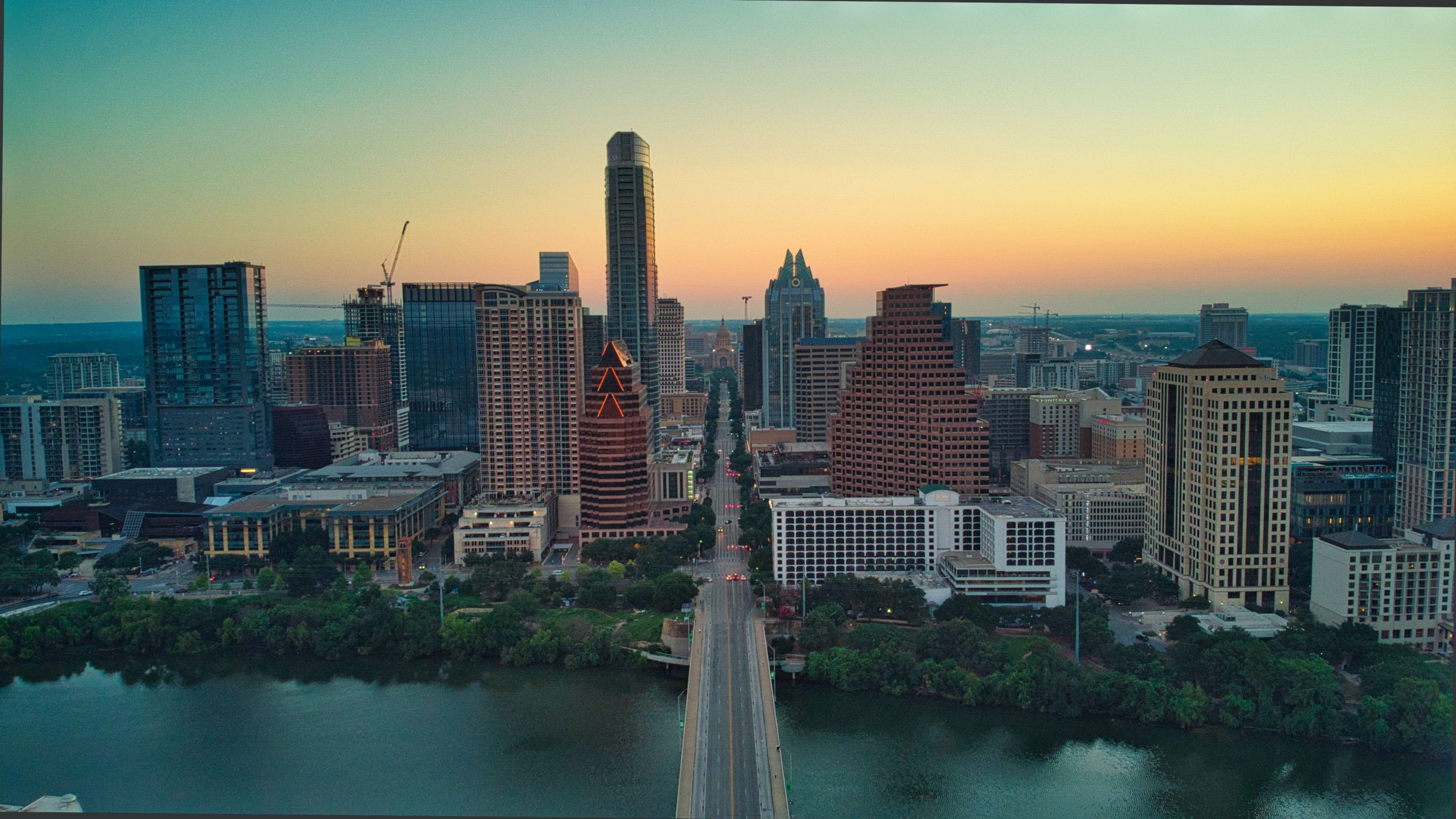One of America's fastest-growing cities has voted to move forward with a process to eliminate parking minimums citywide, sending a clear message that a flood of new residents doesn't have to be followed by a flood new asphalt.
On May 4, the city council in Austin, Texas, passed a resolution to " bring back to Council a code amendment that removes parking requirements citywide," a move that proponents say will encourage dense, walkable communities and reduce the cost of building new housing in the city of 964,000. The Violet Crown City is among the largest in the nation to have made the reform, and it's one of only a tiny handful of red-state metros to do so.
The legislators who introduced the bill, though, say it was worth breaking with the car-centric policies that dominate much of the rest of the Lone Star State — even if detractors fear that Austin's growing population, which is helping drive average multifamily rents up 10 percent year-over-year, will all bring their cars with them when they move in anyway.
"Parking minimums are city-mandated sprawl; they create car dependency and hurt our efforts to make Austin a more affordable and accessible city," said Council Member Zo Qadri, in an interview with Streetsblog. "We’re hoping to tackle the affordability crisis that we face as the city, and parking minimums were a part of discussion long before my candidacy."
Eliminating parking minimums alone, of course, won't erase car dependency in Austin — and it may not dramatically slow the pace at which developers are building car storage. In a release, Qadri's team cited an earlier 2013 ordinance that stuck down parking mandates only in the city's central business district, stressing that in the absence of broader systemic change, "the vast majority of the swarm of new Downtown towers built since then sit on top of multi-level parking plinths."
Since those "plinths" were erected, though, Qadri says a lot has changed. Thanks to a $7.1-billion ballot measure known locally as Project Connect and a subsequent $450-million bond measure, Austin is now poised to make a series of massive new investments into transit, biking and walking over the next decade, and even set a goal last year to get half of the city's population commuting to work outside of a private car by 2039 — a goal which will be challenging if the city keeps stretching out walking distances by building surface lots, or driving up housing prices by building underground.
Of course, not everyone envisions a less car-dependent future for Austin. The Texas Department of Transportation is currently pushing forward a massive highway-widening project along Interstate 35 which advocates have called a boondoggle, and which Austin city council is fighting to make less disastrous for non-drivers by demanding crossings and caps wherever possible.
Despite those challenges, though, the new parking ordinance still won support from a range of groups that stereotypically oppose parking reform like the Austin Real Estate Council, as well as the disability rights group, Adapt of Texas. To make sure that people who rely on cars as a mobility aide have a place to park, the resolution will "direct staff to develop strategies to allow for accessible parking on city-owned right-of-way adjacent to or reasonably nearby the project" — without demanding that private developers build whole new lots for able-bodied drivers.
With that critical accommodation in place, Qadri says the resolution attracted little public opposition and passed with the support of all but one council member, who questioned whether the move was premature. For him, though, it can't come soon enough.
"We’re dealing with a city with a land development code that is severely outdated and city code that's built on the assumption that every resident and every visitor to every business will be driving," Qadri added. "It’s time for the city to get out of its own way and ditch this car-dependency mindset."






